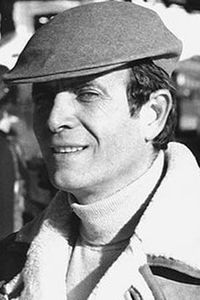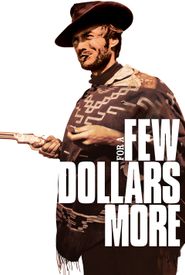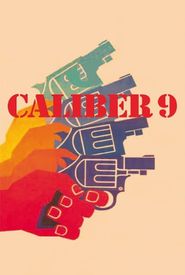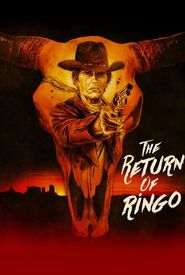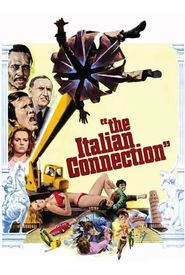Fernando Di Leo, a highly acclaimed and prolific Italian film director and scriptwriter, left an indelible mark on the cinematic world, directing an impressive total of 17 films and scripting approximately 50 motion pictures spanning a remarkable period of nearly two decades, from 1964 to 1985. Born on January 11, 1932, in the charming town of San Ferdinando di Puglia, Di Leo's journey in the film industry began at Rome's prestigious Centro Sperimentale di Cinematografia, where he honed his craft before making his directorial debut with the omnibus comedy Gli eroi di ieri, oggi, domani, a film that marked the beginning of a long and illustrious career.
Biography of Luciano Di Leo:
Luciano Di Leo's professional journey began with a focus on writing scripts for Westerns, a genre that would later shape his creative identity. Although his contributions to these films were often uncredited, his work on notable Westerns such as A Fistful of Dollars, For a Few Dollars More, and Days of Vengeance showcased his talent and dedication to the craft.
Intrigued by the cinematic genre of film noir, Di Leo went on to create an Italian version of these dark and gritty films. His fascination with the genre led him to collaborate with Mino Guerrini on the script for Date for a Murder, marking the beginning of a new creative chapter in his career.
Di Leo's production company, Duania cineproduzioni 70, served as a platform for him to bring his creative vision to life, allowing him to produce a diverse array of films from 1969 to 1976.
During this prolific period, Di Leo's directorial skills were showcased in a wide range of cinematic endeavors, including the war film Red Roses for the Fuhrer, which added to the complexity of his filmography.
In addition to his war film, Di Leo also explored the realm of erotic cinema, crafting films such as A Woman on Fire and Seduction, which further solidified his reputation as a versatile and daring filmmaker.
Furthermore, Di Leo's portfolio also includes the giallo film Slaughter Hotel, which starred the renowned Klaus Kinski and Margaret Lee, demonstrating his ability to assemble a talented cast and bring their performances to life on the big screen.
In the latter half of the 1970s, Di Leo dedicated a significant portion of his professional career to crafting films that drew inspiration from the literary works of the renowned Italian writer Giorgio Scerbanenco, whose influences can be seen in the development of Caliber 9 and The Italian Connection, two films that garnered widespread attention and acclaim. However, Di Leo's creative endeavors during this period were also marked by controversy, as his film Il Boss sparked heated debate and public outcry due to its depiction of alleged connections between the mafia and Italy's major political party, Democrazia Cristiana. Despite this controversy, Di Leo continued to direct films throughout the 1970s and 1980s, showcasing his versatility and range as a filmmaker with projects such as Mister Scarface, Kidnap Syndicate, and Nick the Sting, each of which contributed to his reputation as a skilled and innovative director.
Not only did the accomplished filmmaker, Luigi Di Leo, dedicate his career to the cinematic arts, but he also ventured into scriptwriting, collaborating with other esteemed directors on various projects. His notable works in this capacity include the scripts for Romolo Guerrieri's gritty and intense film, Young, Violent, Dangerous, as well as Ruggero Deodato's high-energy action flick, Live Like a Cop, Die Like a Man.
In the latter years of his career, Di Leo continued to produce films, with his final project being the 1976 release, Rulers of the City, under the auspices of Duania cineproduzioni 70.
The esteemed filmmaker, Di Leo, continued to leave his mark on the cinematic world in the latter half of his career, with a trifecta of films that showcased his mastery of the noir genre, including the critically acclaimed "Blood and Diamonds", the sensual and thought-provoking "To Be Twenty", and the psychological thriller "Madness", all of which premiered in the late 1970s and early 1980s.
In addition to his work in film, Di Leo also made significant contributions to the world of television, producing a range of projects during the 1980s, including the popular television series "L'assassino ha le ore contate", as well as the action-packed films "The Violent Breed" and "Killer vs. Killers".
Fernando Di Leo, a renowned Italian film director and script writer, departed this mortal coil in December 2003, thereby leaving behind a lasting legacy that has had a profound impact on the world of cinema, a testament to his remarkable prolificacy and profound influence on the film industry.
